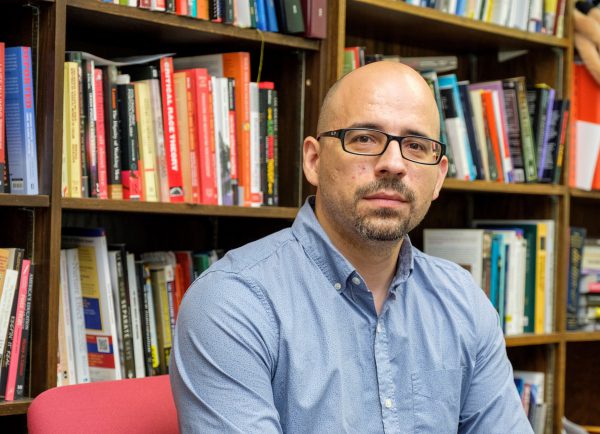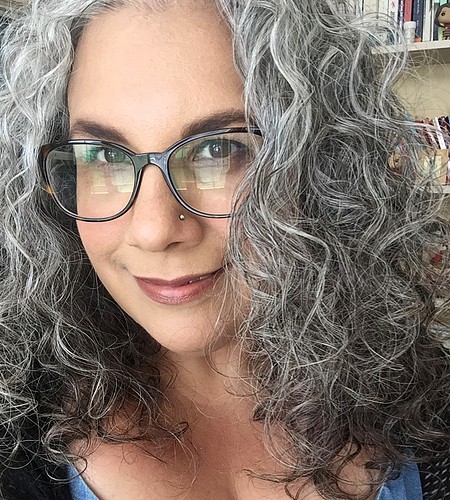A grant from the Andrew W. Mellon Foundation, provided to Kalamazoo College in 2022, will culminate this week with community partners from New Orleans, San Diego, St. Louis, Kalamazoo and more gathering at the College to share the successes of the Humanities Integrated Locational Learning (HILL) project.
The Learning in/from Place and Community Conference will take place Friday–Sunday, October 24–26. By bridging academic inquiry with local partnership, place-based practice, and regional perspectives, the conference offers a model for how liberal arts institutions can engage meaningfully with broad social themes.
“After four years of our students learning from community partners in each of these sites, we are excited to host many of them in Kalamazoo,” Associate Professor of Sociology Francisco Villegas said. “Here, they will be able to meet one another, connect with people doing similar work in Kalamazoo and across Michigan, and share lessons from their work. Each organization has substantial knowledge that is grounded in their geographic location and we hope the conference will further collaborations that will support our respective communities.”
The public is invited. No registration is necessary. Opening remarks will begin at 4:30 p.m. Friday in Dewing Hall, room 103, with a screening of the film BODEWADMI NDAW. A discussion will follow with filmmaker Davis Henderson ’25, artist Jason Wesaw of the Pokegon band of the Potawatomi tribe, and leaders from local Indigenous communities.
Saturday’s highlights include a plenary address by Jamala Rogers, the executive director of the Organization for Black Struggle, at 10 a.m. at the Arcus Center for Social Justice Leadership. Additional panels throughout the day will cover history and preservation, local priorities and cultivating community.
Moderators on Saturday will include K faculty members Christina Carroll, associate professor of history; Espelencia Baptiste, associate professor of anthropology; and Marquise Griffin, associate director of the Mary Jane Underwood Stryker Center for Civic Engagement. Panelists will include:
- Lulu Urdiales of the Chicano Park Museum and Community Center in San Diego, Ben Looker of St. Louis University, Amber Mitchell of the Henry Ford Museum and Dylan AT Miner of the University of Michigan from 11:15 a.m.–12:45 p.m.
- Jazmin Ortiz-Ash of the Kalamazoo County ID program, Macrina Cardenas Montaño of Coalición Pro Defensa Del Migrante in Tijuana, Mexico, Kenlana Ferguson of the Michigan Transformation Collective, and Sashae Mitchell of the Center for Civic Engagement from 2–3:30 p.m.
- Gloria Ward of Ms. Gloria’s Garden in New Orleans, Hristina Petrovska of Kalamazoo Valley Community College, Jackie Mitchell of Integrated Services of Kalamazoo and Shane Bernardo from Food as Healing in Detroit at 3:30 p.m.


Sunday will feature a digital humanities and student research exhibition from 9–10 a.m. at the Arcus Center. A plenary with People for Public Art Executive Director Monica Rose Kelly will follow along with a place-based art workshop featuring Kelly and Destine Price of the FIRE Arts Collaborative in Kalamazoo. The conference concludes with closing remarks at 12:30 p.m.
In 2022, the Mellon grant helped the College’s HILL project organizers design student coursework rooted in K’s commitment to experiential learning and social justice. The program addressed issues such as racism, border policing, economic inequities, homelessness and global warming, while examining history, how humans share land, and the dislocations that bring people to a communal space.
The project was envisioned by Villegas, Associate Professor of English Shanna Salinas and Professor Emeritus of English Bruce Mills. They invited K faculty to build curricula that reflected how power structures produce destabilizing dynamics and the collective responses of affected communities.
Students then had opportunities—locally and at sites across the country—to immerse themselves in heritage, culture, landscapes and community experiences through course materials, collaborative faculty-student research, community engagement, the development of program assessments and the sharing of oral histories tied to partnering projects and organizations. The Beyond Kalamazoo course clusters focused on themes of location and dislocation, emphasizing place-based learning through an integrated travel component in New Orleans, St. Louis or San Diego. The Within Kalamazoo cluster emphasized social issues in the Kalamazoo community. A digital humanities hub published, archived and assessed outcomes in coursework and partnerships.
The Learning in/from Place and Community Conference aims to show how the HILL project has deepened understanding of the humanities’ relevance to society by advancing innovative responses to interconnected issues through students and faculty. For more information, contact Salinas at Shanna.Salinas@kzoo.edu or Villegas at Francisco.Villegas@kzoo.edu.
